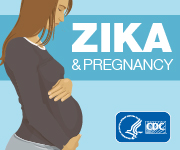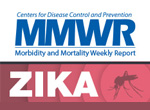Synthetic Cannabinoids: Information and Guidance for Clinicians
Date:Thursday, March 31, 2016
Presenter(s)
Amelia M. Kasper, MD, MHS
Epidemic Intelligence Service Office
Division of Environmental Hazards and Health Effects
National Center for Environmental Health
Centers for Disease Control and Prevention
Robert Galli, MD
Professor
Department of Emergency Medicine
University of Mississippi School of Medicine
Executive Director
TelEmergency
Justin K. Arnold, DO, MPH
Assistant Professor
Department of Emergency Medicine
University of Alabama at Birmingham
Overview
Synthetic cannabinoids are an emerging class of recreational drugs of abuse. Often sold as “spice,” “herbal incense,” or “potpourri,” synthetic cannabinoid chemicals are smoked for their anticipated marijuana-like effects. Since the first reports of trafficking in the United States in 2008, there have been a growing number of reports of related adverse events, including outbreaks of severe illnesses and death. During this COCA Call, clinicians will learn about synthetic cannabinoids, their clinical effects, and the role clinicians can play in the public health response.
Objectives
- Describe the epidemiology and clinical effects of synthetic cannabinoid use
- Discuss recent clusters of severe disease associated with synthetic cannabinoid use in the U.S.
- Identify opportunities for clinicians to support surveillance and response efforts
Call Materials
- Slides: View Now
- Transcript:Read Now
- Audio:Listen Now
- Webcast:Watch Now
Additional Resources
- American Association of Poison Control Centers: Synthetic Cannabinoids
- Drug Enforcement Administration Drug Fact Sheet: K2 or Spice
- National Institute on Drug Abuse: Synthetic Cannabinoids (K2/Spice)
Call Format
- Audio conference call on 3/31/16: 1:00 - 2:00 PM
- Web-on-demand training after 2:00 PM on 3/31/16
- Materials: PowerPoint slide set
Accreditation Statements
Continuing Education
- Activity number:WCWD2286(SC)
- Date of origination:December 12, 2013
- Date of renewal:December 12, 2015
- Date of expiration:December 12, 2017
- Prerequisites:None
- To earn continuing education/contact hours
Target Audience
- Physicians
- Nurses
- Pharmacists
- Veterinarians
- Physician Assistants
- Health Educators
- Other Clinicians
Hardware/Software
Additional Information
- Contact Information:coca@cdc.gov
- Support/Funding:Centers for Disease Control and Prevention, Emergency Risk Communications Branch
- Method of Participation:You may participate in the educational activity by viewing the program information above.
- Fees:COCA continuing education credits are free.
Accreditation Statements
CME:The Centers for Disease Control and Prevention is accredited by the Accreditation Council for Continuing Medical Education (ACCME®) to provide continuing medical education for physicians.
The Centers for Disease Control and Prevention designates this live activity for a maximum of 1.0 AMA PRA Category 1 Credit™. Physicians should only claim credit commensurate with the extent of their participation in the activity.
CNE:The Centers for Disease Control and Prevention is accredited as a provider of Continuing Nursing Education by the American Nurses Credentialing Center's Commission on Accreditation.
This activity provides 1.0 contact hour.
IACET CEU:The Centers for Disease Control and Prevention is authorized by IACET to offer 1.0 CEU's for this program.
CECH:Sponsored by the Centers for Disease Control and Prevention, a designated provider of continuing education contact hours (CECH) in health education by the National Commission for Health Education Credentialing, Inc. This program is designed for Certified Health Education Specialists (CHES) and/or Master Certified Health Education Specialists (MCHES) to receive up to 1.0 total Category I continuing education contact hours. Maximum advanced level continuing education contact hours available are 0. CDC provider number 98614.
 CPE:The Centers for Disease Control and Prevention is accredited by the Accreditation Council for Pharmacy Education as a provider of continuing pharmacy education. This program is a designated event for pharmacists to receive 0.1 CEUs in pharmacy education. The Universal Activity Number is 0387-0000-16-077-L04-P and enduring 0387-0000-16-077-H04-P course category.
CPE:The Centers for Disease Control and Prevention is accredited by the Accreditation Council for Pharmacy Education as a provider of continuing pharmacy education. This program is a designated event for pharmacists to receive 0.1 CEUs in pharmacy education. The Universal Activity Number is 0387-0000-16-077-L04-P and enduring 0387-0000-16-077-H04-P course category.
Course Category: This activity has been designated as knowledge-based.
Once credit is claimed, an unofficial statement of credit is immediately available on TCEOnline. Official credit will be uploaded within 60 days on the NABP/CPE Monitor.
AAVSB/RACE:This program was reviewed and approved by the AAVSB RACE program for 1.0 hours of continuing education in the jurisdictions which recognize AAVSB RACE approval. Please contact the AAVSB RACE Program at race@aavsb.org if you have any comments/concerns regarding this program’s validity or relevancy to the veterinary profession.
CPH: The Centers for Disease Control and Prevention is a pre-approved provider of Certified in Public Health (CPH) recertification credits and is authorized to offer 1 CPH recertification credit for this program.
CDC is an approved provider of CPH Recertification Credits by the National Board of Public Health Examiners. Effective October 1, 2013, the National Board of Public Health Examiners (NBPHE) accepts continuing education units (CEU) for CPH recertification credits from CDC. Please select CEU as your choice for continuing education when registering for a course on TCEOnline. Learners seeking CPH should use the guidelines provided by the NBPHE for calculating recertification credits. For assistance please contact NBPHE at http://www.NBPHE.org.
There is no cost for this program.
DISCLOSURE: In compliance with continuing education requirements, CDC, our planners, our presenters, and their spouses/partners wish to disclose they have no financial interests or other relationships with the manufacturers of commercial products, suppliers of commercial services, or commercial supporters. Planners have reviewed content to ensure there is no bias.
The presentation will not include any discussion of the unlabeled use of a product or a product under investigational use.
CDC does not accept commercial support.
- Page last reviewed: March 1, 2016
- Page last updated: April 11, 2016
- Content source:
- Maintained By:





 ShareCompartir
ShareCompartir
 =
=